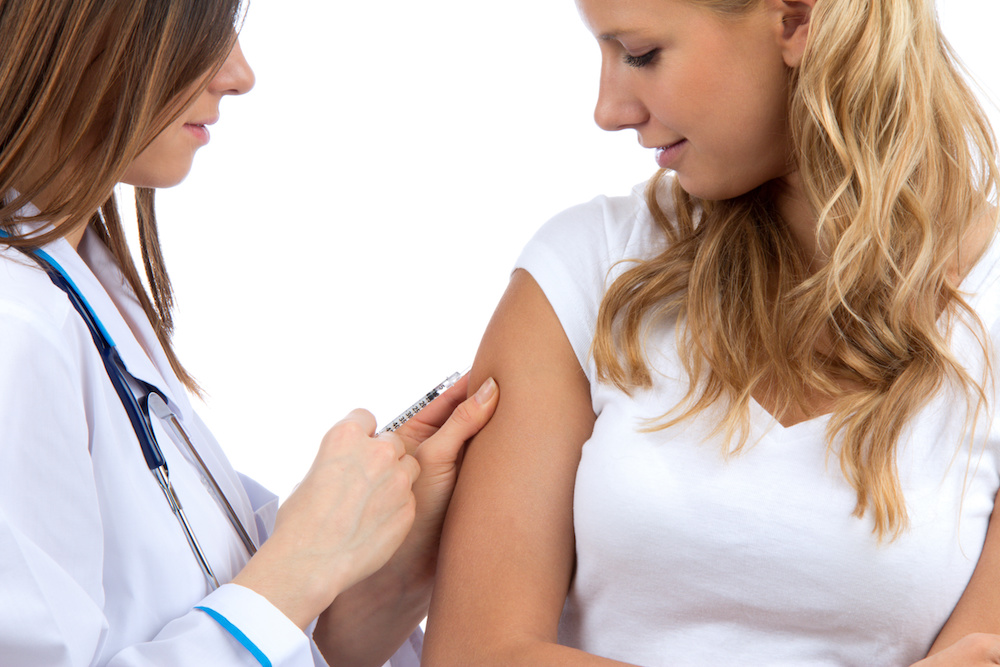Vaccines and infertility treatments

Can I get vaccinated if I am undergoing an infertility treatment?
Vaccines are intended to reduce the chances of future viral or bacterial infections. Although the effectiveness is not complete, those who are vaccinated have a better protection and a lower frequency of these types of infections. In the case of those who are undergoing an infertility treatment, in some cases, the advantage is not only to reduce the risk that the woman who is vaccinated will become infected and suffer symptoms or complications of the disease, but also, in some cases, it also prevents fetal complications, which can range from mild to very severe, depending on the microorganism and the time of pregnancy in which the infection occurs. Finally, some infections have a higher rate of complications in pregnant women, so prevention in this population is important.
Vaccines have different routes of administration and the technology used to produce each vaccine is also different. Although most of them are injectable, there are also some that are administered orally and others as a nasal spray. Vaccines are produced with many different technologies, although the most common ones usually contain small amounts of dead or attenuated bacteria or viruses (weakened or altered in such a way that they do not cause disease) or using parts of these microorganisms (for example a protein). This way, our body generates antibodies against these bacteria or viruses and, our body gets in touch with that microorganism, our body generates an immune response (“defense of the body”) preventing an infection.
What vaccines might be important when looking for a pregnancy?
A relevant example is rubella. An infection with this virus can cause miscarriages or serious birth defects if an unvaccinated pregnant woman gets infected. Vaccination against rubella before pregnancy can help prevent this infection and its serious consequences.
Another example is the flu vaccine. An infection with this virus can cause more severe maternal complications in a pregnant woman than in a woman that is not pregnant.
What about the Covid-19 vaccine? (note that this information should be updated on a daily basis, and it is only valid for the day this article is published)
Regarding vaccination against Covid-19, the information available changes from one day to another. Beyond what we mention here, we suggest you discuss this with your doctor about it. At present, there is no safety data as this vaccine has not been tested in pregnant women. According to the American College of Gynecology and Obstetrics (ACOG), those who are pregnant and belong to a risk group should talk with their doctors about this topic to assess whether they should be vaccinated. The US Center for Disease Control (CDC) says that “Women who are trying to become pregnant do not need to avoid pregnancy after receiving an mRNA COVID-19 vaccine”. Information valid as of January 25, 2021.
When is the best time to get vaccinated?
Some vaccines can be given during pregnancy, while others should not. In the case of hepatitis A and hepatitis B vaccines, as well as the flu vaccine, it can be given during pregnancy. However, the rubella and chickenpox vaccines should not be given during pregnancy, and at least one month of waiting is suggested between vaccination and the start of the pregnancy. It is always advisable to talk with your doctor to see when it is convenient to carry out the vaccination.
Apart from pregnancy, there are health conditions, certain medications and specific allergies that can contraindicate certain vaccines.
On the other hand, there are specific vaccines that must be applied in case of traveling to certain regions where the risk is greater.
In summary, the use of vaccines to prevent infections during pregnancy is very important. All women undergoing an infertility treatment should consult their specialist doctor about the vaccines to be applied and when is the right time to do so.


